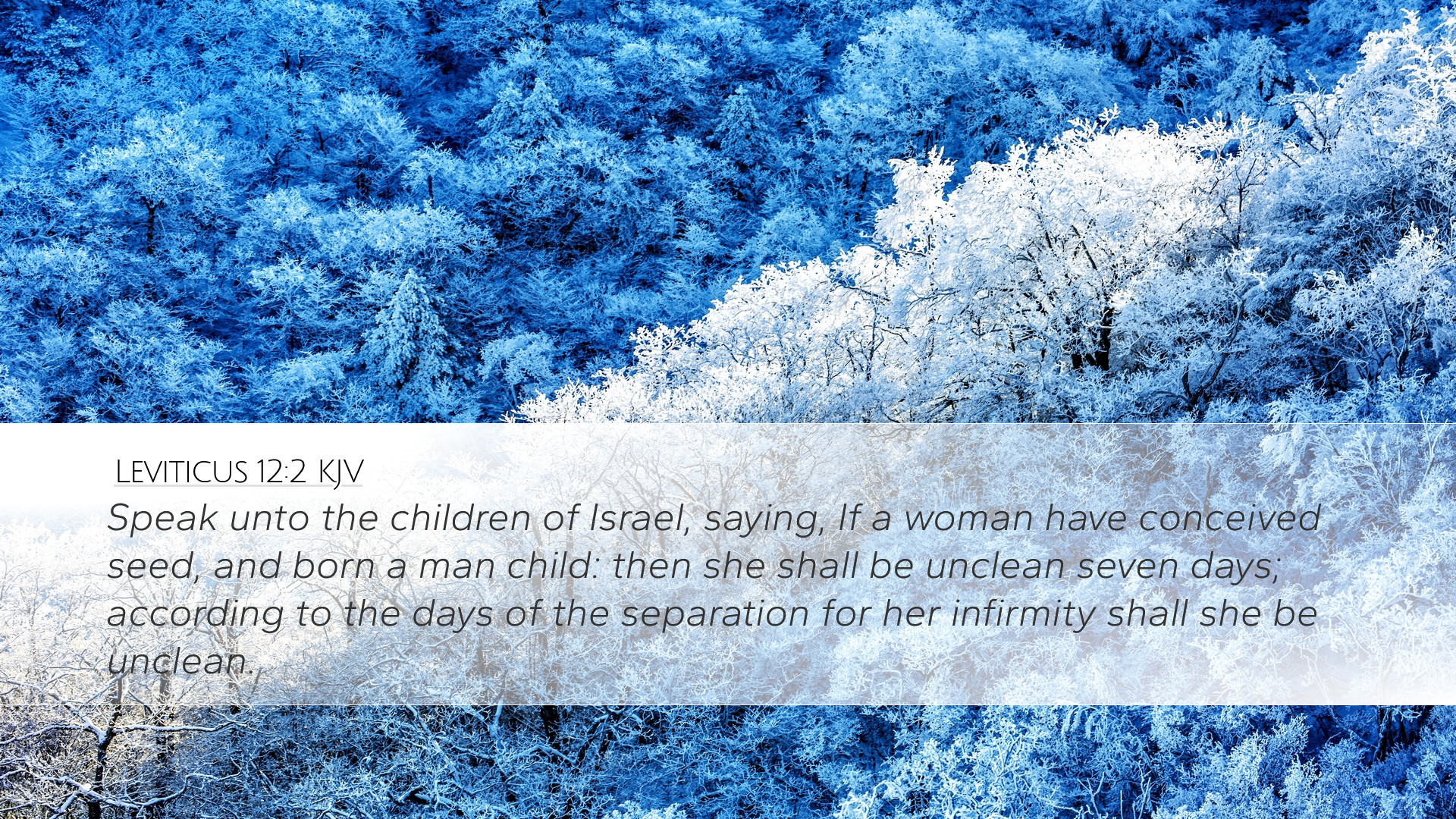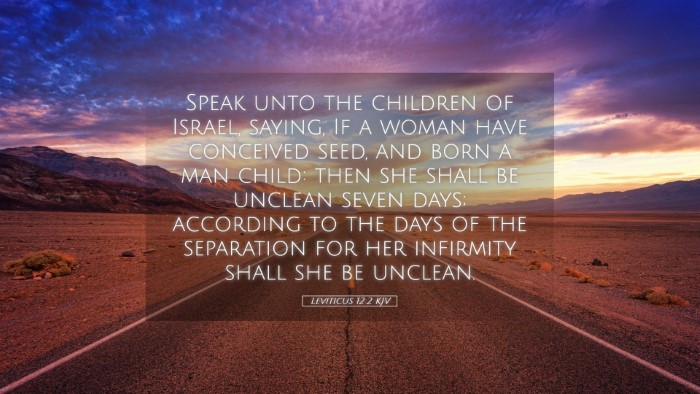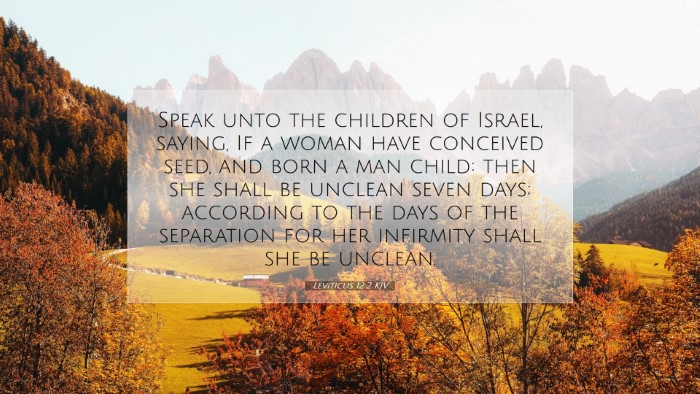Commentary on Leviticus 12:2
Leviticus 12:2 states: "Speak unto the children of Israel, saying, If a woman have conceived seed, and borne a male child: then she shall be unclean seven days."
Introduction
This verse introduces a significant aspect of the ceremonial laws regarding childbirth and its implications for ritual purity within the Israelite community. The laws outlined in this chapter reflect deeper theological and social principles that govern the life of the community and the individual relationship with God.
The Historical Context
The context of Leviticus reveals that the Israelites were establishing their identity as a holy nation set apart for God. Following the Exodus from Egypt, their covenant with God necessitated guidelines for holiness, which included regulations on purity. The childbirth laws served as a reminder that God is the source of life, and by following these instructions, the people upheld their commitment to be ceremonially clean.
Commentary Insights
-
Matthew Henry:
Henry emphasizes that the ceremonial uncleanness following childbirth does not imply sinfulness. He notes that childbirth is a natural process ordained by God and should be viewed positively. The uncleanness signifies a time of separation for the mother, which can be seen as a protective measure for her health and spiritual well-being.
-
Albert Barnes:
Barnes highlights that the law's stipulation of a seven-day period of uncleanness serves both a spiritual and physical purpose. This time allows the mother to recover from childbirth and also represents a period of transition from one state of being to another. The emphasis on a male child particularly signifies the importance of male offspring in ancient Israelite society.
-
Adam Clarke:
Clarke discusses the implications of uncleanness and its roots in ancient Near Eastern culture. He posits that these laws connect to broader themes of purity in the presence of God. To Clarke, the seven days of separation were not merely punitive, but rather a means of inviting mothers into a space where they can reflect on the magnitude of life and their role as nurturers.
Theological Implications
The regulation of purity illustrates the Israelites' understanding of God's presence. The framework established in Leviticus reflects a God who desires holiness and provides guidelines for maintaining it. The ritual of purification allows for spiritual practices that bring individuals and the community back into alignment with God's will.
Additionally, the distinct mention of a male child indicates the cultural importance placed on male heirs and lineage in Israel. It serves as a reminder of the patriarchal structure within Israelite society, while also acknowledging God's sovereignty over life and family.
Application for Today
For modern readers, Leviticus 12:2 challenges us to consider how purity and community health manifest in our lives. While the ceremonial laws are no longer binding, the underlying principles of restoration and the sanctity of life remain relevant. Pastors and theologians can draw from this text to emphasize the importance of caring for new mothers and recognizing the transformative power of childbirth.
Furthermore, this passage invites reflection on the communal aspects of faith and the role of the church in supporting families during periods of transition, whether through childbirth or other life changes. It reminds believers to celebrate the gift of life while honoring the process of healing and recovery that ensues.
Conclusion
Leviticus 12:2, while rooted in the ancient context of Israel, resonates with timeless truths about life, community, and holiness. As pastors, students, theologians, and scholars delve into this text, may they uncover deeper meanings that enrich their understanding of God’s design for family and community while recognizing the layers of historical and cultural significance that shape the passage.


